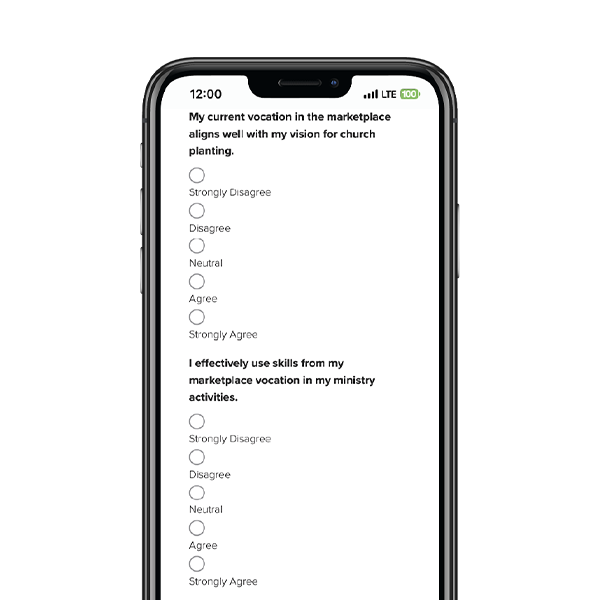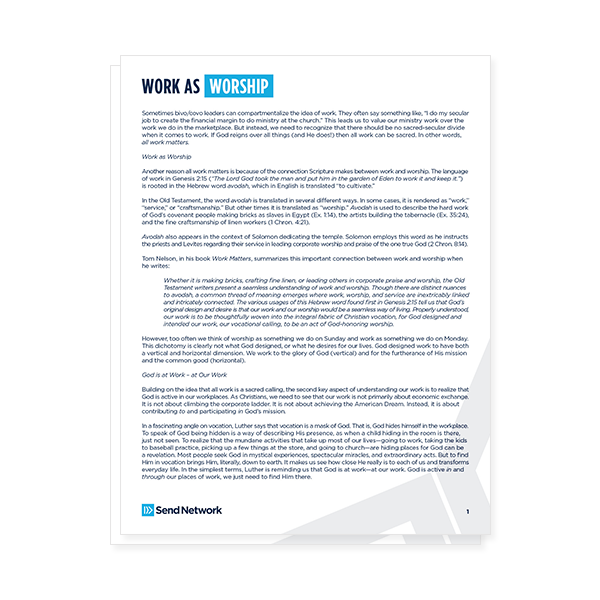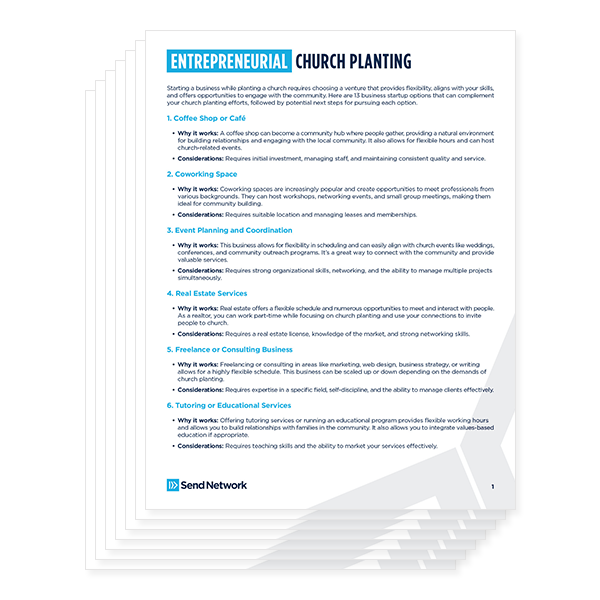In 2010, my family moved to Boston (one of the most expensive places to live in the U.S.) with a church planting team to plant Redemption Hill Church. Planting as a team raised a number of challenging financial questions for us—many of which we didn’t even ask until much later in our journey. Through our journey, we’ve made many mistakes and seen others make mistakes as well. Learn from us so that you don’t make them yourself. Here are a few mistakes to avoid:
1. Settle for inadequate compensation.
For various reasons (lack of funding, unrealistic planning, emptying of personal savings, etc.), many planters are making it by with just the bare minimum to survive. While I applaud their sacrificial hearts, not being adequately compensated causes incredible undue stress on the planter and his family and often times causes planters to too quickly change their strategy. Don’t settle for inadequate compensation, rather:
- Think holistically about your compensation plan, and consider the following categories: salary, housing allowance, health insurance and other potential benefits (disability and life insurance, bonuses, retirement, car allowance, social security allowance).
- Set an adequate salary to begin with that also considers increases and raises overtime. It’s ok and even biblical to be cared for financially ( 1 Timothy 5:17-18; 1 Corinthians 9:7-14). Aubrey Malphurs and Steve Stroope share a ton of great advice in their chapter on “Paying the Staff” in Money Matters in the Church, discussing what factors should be considered and even how to think about increases and raises. The best thing we did before moving to Boston was connecting with as many planters and pastors in the area to get a realistic idea for what it was going to cost us to live.
2. Don’t think creatively.
Once you’ve set an adequate salary, the next step is figuring out how to fund it. Think outside of the box for both yourself and in helping others join you. Funding could come from one or all of the following categories:
- Church budget
- Full or part-time job(s) in the community
- Raised support
One creative way we have added staff without drastically increasing our church budget is through an internship program called Generation LINK. Summer and year-long residents provide for their own needs through a combination of support raising and part-time jobs.
3. Ignore and refuse to seek the counsel of others.
Many headaches in church planting related to staffing and salaries can be avoided through the wisdom and counsel of others (Proverbs 11:14; 15:22; 20:18; 24:6). As planters prepare and review their salaries and staffing plans, seek out counsel from your Sending Church, Supporting Church, other church plants (those in the same stage and those ahead) and wise members of your church plant, for accountability and perspective. I’m so grateful for the many in the above categories who have helped us and are currently helping us as we continue to wrestle through staffing and salaries.
4. Over-promise and under-deliver.
In an attempt to persuade potential leaders to join your team, it is very tempting to make promises (often times innocently) that you will not be able to keep. When promises go unfulfilled for various reasons (the church doesn’t grow as fast as you planned, staffing needs have changed, etc.), relationships can be severely damaged. Instead of over-promising and under-delivering:
- Be upfront and honest. Be willing to have the hard conversations beforehand.
- Under promise and over deliver. Communicate on the front end that they may never receive a dime.
5. Make bad hires.
There are a lot of good resources available to help you think about what to look for when hiring someone, but here are a few encouragements unique to church plants.
- Don’t hire people to just “do” ministry, hire people who will develop leaders (Ephesians 4:11-13). Additionally, your first few hires should also be “bringers,” people who are great at engaging and pursuing others for the sake of the gospel.
- Don’t hire reactively, but proactively. Resist the pull to fix the “squeaky wheel” or put out the urgent “fires.” Rather, strategically hire leaders who will build networks, equip others and mobilize volunteers in ministries poised for the greatest effect.
- Don’t over-hire. Aim to keep your salaries within appropriate budgeting percentages, no more than 55 percent of your entire church budget.
Learn from the mistakes of those who have gone before you so that God might be glorified and His mission might speed forward through your church planting endeavors.
Published June 26, 2017




